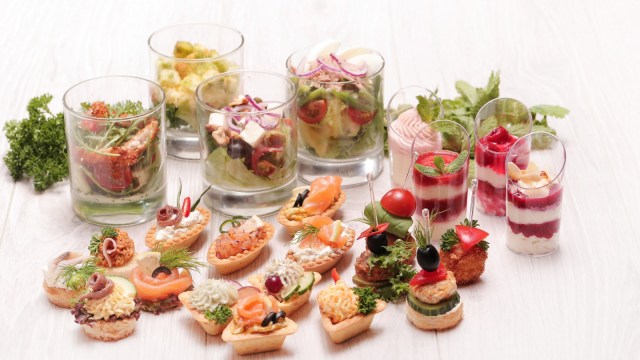Is alcohol making you overeat at parties? Here’s how to eat right
Excitement or alcohol at parties can increase cortisol, a stress hormone, which can make you crave more unhealthy foods
 Emotional stress, excitement, or alcohol at parties can increase cortisol, a stress hormone, which can make you crave more unhealthy foods. (Photo: Freepik)
Emotional stress, excitement, or alcohol at parties can increase cortisol, a stress hormone, which can make you crave more unhealthy foods. (Photo: Freepik)Avoiding overeating during New Year’s party night is crucial for maintaining both short-term and long-term health, as overeating can lead to a chain reaction in your hormones. For example, when you eat too much sugary or fatty food, your blood sugar levels rise quickly. In response, your body releases extra insulin to lower the sugar levels but this can cause your blood sugar to drop too fast, making you feel hungry again—even though you’ve just eaten.
Overeating can also confuse your body’s “fullness” signals, controlled by a hormone called leptin, while increasing the hormone ghrelin, which makes you feel hungry. On top of that, emotional stress, excitement, or alcohol at parties can increase cortisol, a stress hormone, which can make you crave more unhealthy foods.
Avoid Skipping Meals: Skipping meals earlier in the day with the intent of indulging later is not advisable. Prolonged fasting causes a drop in blood glucose levels, which heightens hunger and makes overeating far more likely. Instead, begin the day with a balanced breakfast that includes protein and fibre to stabilise blood sugar levels. For example, a boiled egg with whole-grain toast and a side of unsweetened yogurt offers a balance of macronutrients.
Start with Healthier Options: Begin your celebration with options such as salads, steamed vegetables, or soups. Fiber slows carbohydrate absorption, reduces glucose peaks and promotes a sense of fullness. Avoid foods that are dense in refined carbohydrates, such as bread rolls, fried snacks, or sugary sauces, as these cause rapid glucose fluctuations. Desserts, if consumed, should be taken in a small dollop and only after the main meal.
Portion Control: Opt for smaller servings. This way, you control your portions and avoid loading up on calorie-dense foods in one go.
Use the 80% Rule: A simple but effective strategy for managing overeating is the “80% rule,” which involves stopping when you feel 80% full, rather than when you feel completely stuffed. This approach helps your digestive system and ensures that you’re eating only until your body has had enough.
Watch Out for Alcohol and Dehydration: Dehydration is often mistaken for hunger, leading to unnecessary eating. For patients with diabetes, alcohol poses additional challenges as it could suddenly lower blood sugar. When you drink alcohol, your liver breaks down the alcohol instead of releasing glucose into your bloodstream to maintain blood sugar levels. This can cause a drop in blood sugar levels, especially if you drink on an empty stomach. Limit alcohol to one or two servings, ideally consumed with food to slow its absorption.
Control the Condiments and Sauces
Sauces and condiments often contain hidden sugars, fats, and calories. While they can add flavour, they can quickly increase the calorie content of your meal. Instead of smothering your food in heavy sauces or dressings, ask for them on the side so you can control how much you use.
(The author is senior consultant, endocrinology, Indraprastha Apollo Hospitals, Delhi)






- 01
- 02
- 03
- 04
- 05

























